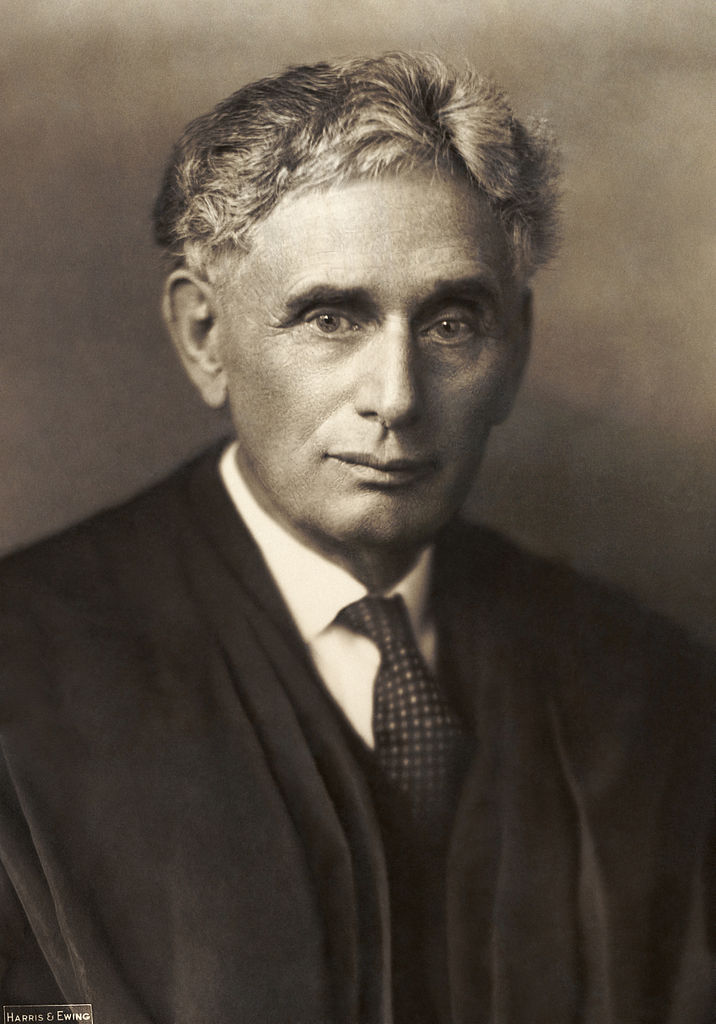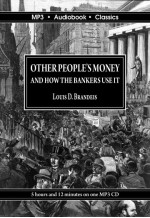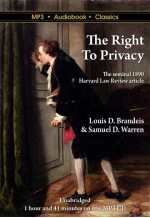Louis D. Brandeis
| Louis Dembitz Brandeis (November 13, 1856 – October 5, 1941) was an American lawyer, Supreme Court justice, and champion of social causes who developed a reputation as “the People’s Lawyer”. He was born in Louisville to parents who had immigrated to America from Prague, Bohemia, in response to growing anti-Semitism sentiments. He grew up in a cultured household and much revered his Uncle Louis Dembitz, an educated man who was among the delegates Republican convention that nominated Abraham Lincoln in 1860. An outstanding student, he entered Harvard Law School at age eighteen and graduated with the highest grades ever achieved. He established a law practice in Boston with classmate Samuel Warren and also served as clerk to Massachusetts Supreme Court chief justice Horace Gray. The firm became successful and the resulting financial security enabled Brandeis to pursue progressive causes as an unpaid counselor. He generally felt that the law lagged behind the facts of life, and that the public interest was often inadequately represented in legal matters where private interests were represented by strong counsel. He is well-known for developing the concept of an inherent right of privacy, and is also known for reforming corrupt insurance industry practices, helping codify principles of conflict of interest in public affairs, and for opposing monopoly control of New England railroads. While pioneering pro bono work on social causes he pioneered in the law as well by developing the “Brandeis brief”, the practice of using extra-legal research and expertise as evidence in support of positions, which moved the law beyond its strict reliance on precedent and abstract principles. His positions on monopolies and regulation brought him into Woodrow Wilson’s sphere, and Wilson enlisted him to help in the establishment of the Federal Reserve and the Federal Trade Commission. His nomination to the Supreme Court in 1916 was met with considerable opposition and led to the first hearings held to vet a nominee. He served on the court for 23 years. His opinions, especially on the issues of the right to privacy and freedom of speech, are considered foundational. In later years he was an active leader in the Zionist movement and strongly supported the establishment of a Jewish homeland in Palestine as a remedy to anti-Semitism. He died of a heart attack in 1941 and is buried beneath the portico of the Law School of the University of Louisville. |
Other Peoples' Money and How The Bankers Use It
Other People’s Money and How the Bankers Use It is a collection of essays by Louis D. Brandeis that ..
$9.99
The Right to Privacy
The Right to Privacy is an article that appeared in the Harvard Law Review December 15, 1890 that is..
$9.99



